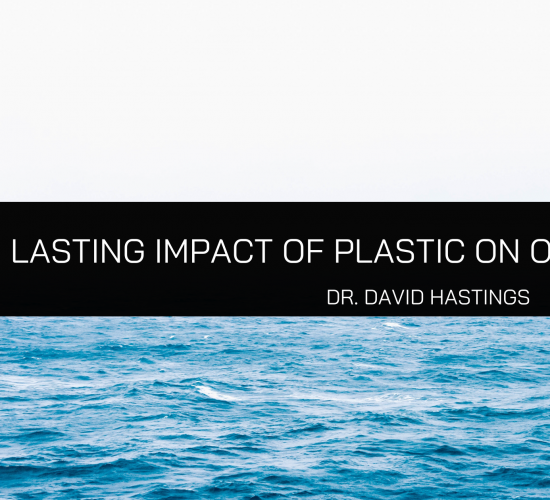Marine Science Expert Dr. David Hastings Outlines Lasting Impact of Plastic on Ocean Environment

The impact of plastic waste on the world’s oceans is proving to be both devastating and potentially incredibly long-lasting, according to Dr. David Hastings, a marine science expert from Florida. From the entanglement and starvation of marine mammals, sea turtles, and other species, to the pollution of remote and otherwise pristine environments, Dr. Hastings provides a closer look at the worrying damage that plastics are doing to our seas.
“Often I’m asked, ‘How does plastic affect the marine environment?’” says Dr. David Hastings, a marine science expert, speaking from his home in Gainesville, Florida.
According to the marine science expert, among the most significant and worrying effects are the three that are, perhaps, most visible. “Ingestion, entanglement, and suffocation of marine life,” says Dr. Hastings. Numerous species, including fish, turtles, seabirds, and marine mammals, are now affected, he reports.
“These creatures mistake the plastic waste that now litters our seas for prey items,” reveals the marine science expert, “and many die as a result, effectively starved to death while their stomachs are packed with indigestible plastic waste.”
Instances of starvation as a result of plastic ingestion are not isolated, either, Dr. David Hastings goes on to point out, nor are cases of entanglement and suffocation. “Ocean currents can carry this plastic debris for thousands and thousands of miles,” Gainesville-based Dr. Hastings explains, “meaning that waste from one side of the world can end up in marine environments on the other.”
Equally worrying is the fact that, at the same time, plastic debris in the ocean also so easily allows for the distribution of other pollutants, states Dr. David Hastings. “Some of the most toxic and persistent chemical pollutants in the marine environment readily attach to plastic debris,” notes the expert, “where they’re then carried on ocean currents, polluting—and further accumulating additional pollutants—as they go.”
Harmful for marine organisms, Dr. David Hastings goes on to report, plastic waste now routinely washes up on the otherwise pristine beaches of some of the world’s most remote and environmentally important locations. “With startling regularity, plastic debris of all sorts from distant sources which can be contaminated with pollutants now washes up on beaches on even the most remote archipelagos, such as the Galapagos Islands, as never before,” reveals Dr. David Hastings.
This is particularly devastating, he says, as islands such as the Galapagos remote and otherwise unaffected by humans until relatively recently—are often places of incredible environmental importance. “More than 97 percent of the archipelago’s land area is recognized as a nature reserve, untouched and unspoiled, and home to a wealth of unique and thus rare species,” explains Dr. Hastings.
Yet the impact of plastic waste, arriving on the Galapagos Islands’ beaches via ocean currents, looks set to prove both catastrophic and long-lasting if not dealt with as a priority. While the 70,000 square kilometers of the ocean surrounding the archipelago has been declared a marine science reserve since the mid-1980s, plastic pollution arriving from elsewhere on the planet now poses a greater-than-ever threat to the local environment, it’s said.
Sadly, the same is now true, according to marine science expert Dr. David Hastings, of remote and otherwise pristine destinations around the world, including Australia’s Great Barrier Reef. “Millenia of pristine conditions are now being upset by just a few short decades of human impact delivered in the form of plastic pollution,” stresses Dr. Hastings. This impact, he says, while having occurred in only a relatively very short window of time, appears to be extremely long-lasting since plastic is durable and resistant to degradation.
“If we are to turn the tide on plastic pollution in our oceans, we must act now,” says marine science expert Dr. David Hastings in closing, “or risk further catastrophic impact which could affect global marine environments for millennia to come.”
Additional Information
- Dr. David Hastings
- Dr. David Hastings
- David Hastings Marine Science